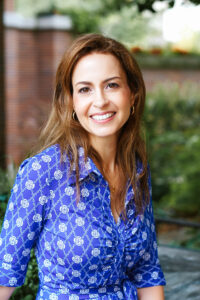Melinda Ring, MD, FACP, ABOIM on Cooking Up Health
 In 2016, a partnership between the Osher Center for Integrative Medicine at Northwestern University and the nonprofit organization Common Threads led to the creation of Cooking Up Health, a culinary medicine course for health professionals. Culinary medicine blends the art of cooking with the science of medicine. The CUH program at NU’s Feinberg School of Medicine in Chicago focuses not just on the reason for healthy eating, but also provides the tools to prevent and manage chronic health conditions through lifestyle choices.
In 2016, a partnership between the Osher Center for Integrative Medicine at Northwestern University and the nonprofit organization Common Threads led to the creation of Cooking Up Health, a culinary medicine course for health professionals. Culinary medicine blends the art of cooking with the science of medicine. The CUH program at NU’s Feinberg School of Medicine in Chicago focuses not just on the reason for healthy eating, but also provides the tools to prevent and manage chronic health conditions through lifestyle choices.
Cooking Up Health aims to address two societal challenges—the high cost, both in quality of life and economic impact, of non-communicable lifestyle-related diseases, and the lack of education on lifestyle choices. Despite the recognition that health professionals play a huge role in combating societal issues like obesity, cancer, and diabetes, current medical training leaves professionals under-equipped to meet the challenge.
Nutrition is a central component of a healthy lifestyle, yet only 29% of medical schools teach the recommended 25 hours of nutrition, and fewer than 14% of practicing physicians feel adequately trained. The CUH course teaches health science students about real-world nutrition and healthy cooking through lessons that combine graduate-level nutrition and hands-on cooking, and service-learning sessions in which students teach the Common Threads Small Bites curriculum to children in at-risk communities. Cooking Up Health students learn basic culinary skills, steps to create nutritious meals, relationships between food, health, and disease, and gain practical experience in health coaching while exploring cultural and socioeconomic factors in behavioral change.
According to a 2019 study published in the Journal of Alternative and Complementary Medicine, during their training, CUH students showed statistically significant increased confidence in nutrition and obesity counseling and improved attitudes about the importance of nutrition counseling in patient care. What’s more, students showed increases in cooking confidence and their intake of vegetables and fruits, and decreased meat consumption.
Due to the COVID-19 pandemic, the CUH shifted to a virtual format. The shift to virtual culinary medicine may increase accessibility for health professional schools without the expertise or resources to conduct the course on site.
For health professionals who ardently believe in the power of nutrition to transform health, culinary medicine provides practical tools to help learners, from patients to students to communities, put recommendations into action.
Melinda Ring, MD, FACP, serves as director of the Osher Center for Integrative Medicine at Northwestern University. She is a Diplomate of the American Board of Integrative Medicine® (ABOIM®).






